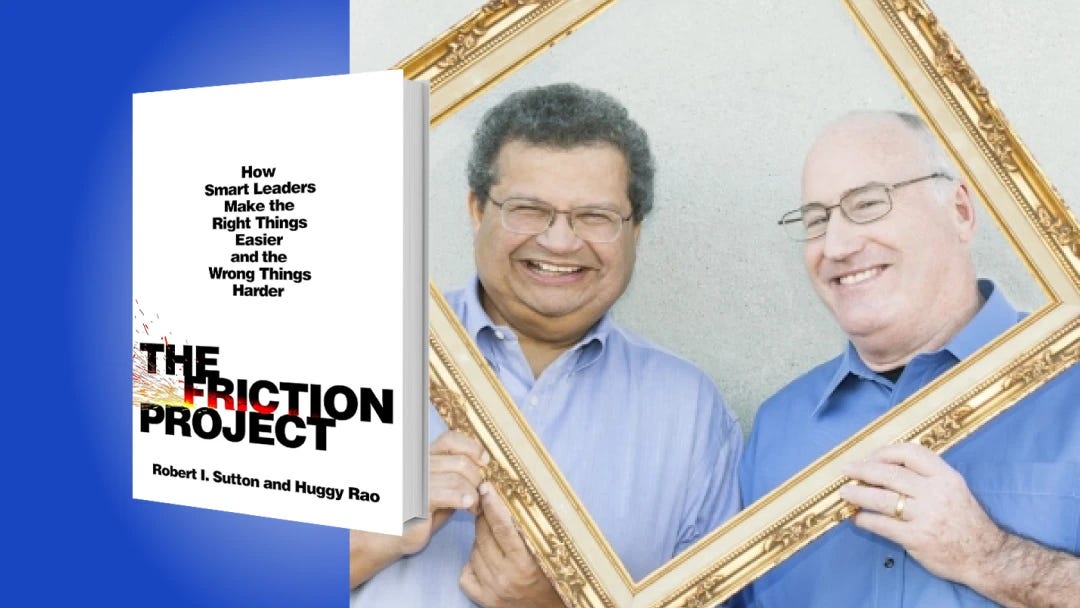The Subtraction Mindset: How This Stanford Prof Cuts Complexity to Drive Organizational Success
Robert I. Sutton shares 5 key insights from The Friction Project: How Smart Leaders Make the Right Things Easier and the Wrong Things Harder
How much do you know about friction? It’s a topic in physic class, sure, but it’s also an important part of the physics of business, a fundamental force that can grind your operation to a halt. Every large organization encounters friction -- sticking points that make it harder, more complicated, or simply impossible to get things done. But there are ways you can overcome friction, or use it for your own benefit. To explain how to do this, we’re joined by Robert I. Sutton, co-author — with Huggy Rao — of The Friction Project: How Smart Leaders Make the Right Things Easier and the Wrong Things Harder. Robert is a Stanford professor, organizational researcher, and best-selling author. He was named as one of 10 B-School All-Stars by BusinessWeek, and is an IDEO Fellow. Read or listen to 5 big ideas from the book below:
The 5 Key Insights:
1. You are a trustee of people’s time.
2. Adopt a subtraction mindset.
3. Avoid jargon monoxide.
4. Not all friction is bad.
5. Embrace the mess.
1. You are a trustee of people’s time.
Leaders and teams that are especially good at making the right things easy and the wrong things hard embrace a similar mindset or mission. They have an attitude that we call the trustees’ mindset. They see themselves as trustees of others’ time. When we were at Stanford preparing a class for 60 executives, our colleague Jeremy Utley stood up in the middle of the meeting and bellowed, “I hate wasting other people’s time!” That is the embodiment of the trustees’ mindset—a leader who feels obligated to assure that their employees, customers, or students have every minute of their time used well.
Being a trustee is never a one-and-done situation. Back in 2015, I wrote an article about how Dropbox had this amazing intervention called Armeetingeddon in 2013, where leaders removed standing meetings from everybody’s calendar, and employees couldn’t add new meetings back in for about a week. During this time, they were asked to think about which meetings were essential. Dropbox also made all these new rules and displayed them on the walls, like, for example, that you should keep meetings as small as possible, and you should even leave a meeting if it wasn’t effective or you weren’t adding value.




